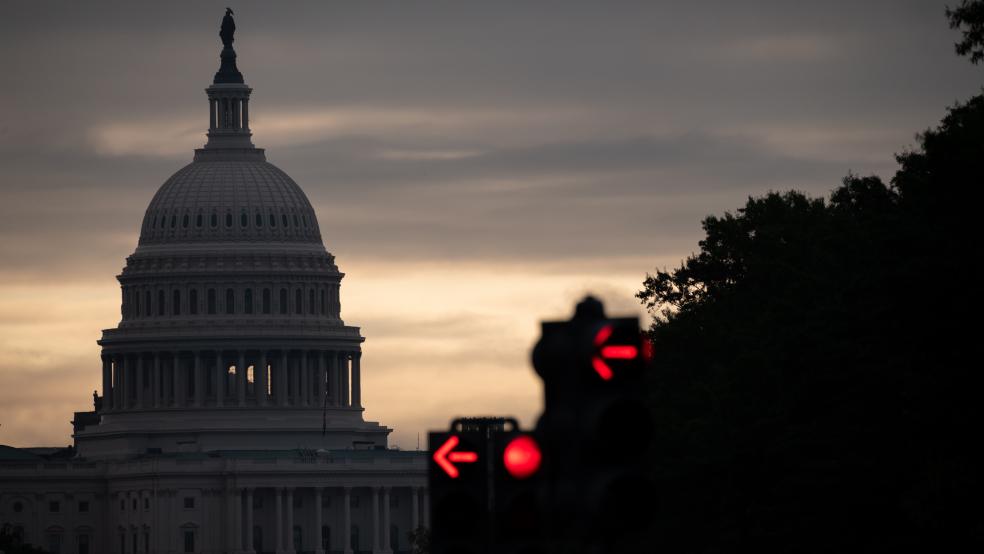Moody’s Analytics chief economist Mark Zandi told lawmakers Thursday that the bill passed by House Republicans to raise the debt limit in the short run while slashing spending over a period of 10 years would drag on economic growth and possibly push the U.S. into a recession.
Speaking at a Senate Budget Committee hearing, Zandi said the government spending cuts included in the bill would reduce economic growth by 0.67 percentage points in 2024. That alone would not be enough to cause a recession, Zandi said, but it could hasten a slowdown that many economists expect to develop later this year or in early 2024.
“The timing of the government spending cuts in the Limit, Save, Grow Act is thus especially inopportune — it would meaningfully increase the likelihood of such a downturn,” Zandi said in his prepared testimony. “Indeed, under the legislation, GDP growth is so weak that employment declines in the first three quarters of 2024, and the unemployment rate rises by more than a percentage point to nearly 4.6% by the fourth quarter of 2024.”
The fact that the bill would raise the debt limit for less than one year is also a problem, Zandi said, since the likelihood of another political showdown over the issue in just a few months would “weigh on investor, business and consumer confidence and thus economic activity.”
Zandi also noted that the spending cuts outlined in the House GOP bill would push nondefense spending to lows not seen in decades when measured as a share of the economy. “If nondefense discretionary outlays were to bear the full brunt of the proposed budget cuts, they would fall to 2% of GDP by fiscal 2033, the lowest since at least the early 1960s,” he said.
Lawmakers spar: The hastily arranged Senate hearing gave Democratic lawmakers a platform to push back against the bill passed by House Republicans last week. Sen. Patty Murray (D-WA) charged that the GOP was using the debt ceiling as a hostage. “House Republicans are saying if you don’t let us wreck the economy and whittle down essential government services to the point where we are laying off air traffic controllers, then we will just wreck the economy by refusing to pay the bills instead,” she said.
In response, Republicans focused more on the long-term issue of the national debt while calling on President Biden to come to the negotiating table. “House Republicans have acted responsibly by passing a debt ceiling increase,” said Sen. Chuck Grassley (R-IA), the top Republican on the committee. “In contrast, President Biden and Democrats have sat idly by.”
Brian Riedl, a tax and budget specialist at the conservative Manhattan Institute, said the current fiscal trajectory is unsustainable and must be addressed “immediately.” He warned that international investors would punish the U.S. if it continues to increase its debt. “If we don’t deal with this, the bond market will cut us off at some point and it will be much more painful,” he said.
At the same time, Riedl declared that lawmakers must avoid a default. “I agree that the debt limit must be raised on time, no matter what,” he said. “Hitting the debt limit would force an immediate 20% cut in federal spending, and possibly default on the national debt. The effect on families, businesses, financial markets, and the broader economy would be devastating. That is not a solution to soaring debt. The debt limit must be raised.”
Another expert appearing before the committee, Jason J. Fichtner, chief economist at the Bipartisan Policy Center, emphasized that raising the debt ceiling should be lawmakers’ top priority. “First, Congress must raise the debt ceiling. Period. Full stop,” he said. “Taking the nation near the brink of defaulting on any payment obligations—or going over the cliff and failing to make any obligated payments—will cause unnecessary fiscal expense, potentially damage the full faith and credit of the United States, cause financial harm to millions of Americans (through possible delayed government payments and loss of stock market value and retirement account wealth) and, in the end, cost more than any potential savings being discussed or imagined.”
After the debt ceiling threat is removed, Congress can work to improve the country’s unsustainable fiscal trajectory, Fichtner said. He called on lawmakers to work on a bipartisan basis. “While the debt limit is not a good mechanism to facilitate the necessary and thoughtful conversation on addressing the nation’s fiscal challenges, it is the opportunity currently present and available,” he said. “I encourage members of the House and Senate, Democrats and Republicans, and President Biden, to sit down and negotiate before the Treasury Department runs out of options to continue making full payments on the government’s obligations.”
The bottom line: Although the experts testifying before the Senate committee agreed that the U.S. needs to address its long-term fiscal challenges, there was no agreement on whether using the threat of default provided a proper framework for doing so. All did agree, however, that default should not be an option. “We need to end this drama as quickly as possible," Zandi said. “If we don't, we're going to go into recession and our fiscal challenges will be made even worse.




